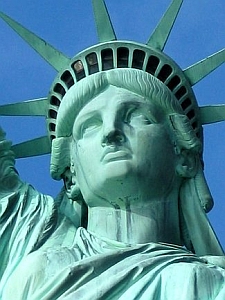A new report on the impact of immigration on innovation in the U.S. says researchers from overseas account for a large majority of the patents granted to inventors from top research universities, particularly in high-growth science and engineering fields. The report, “Patent Pending: How Immigrants Are Reinventing The American Economy,” was prepared by the Partnership for a New American Economy, an organization of business and municipal leaders, including the CEOs of Microsoft, Boeing, and the Disney Company, as well as the mayors of New York, Philadelphia, and Los Angeles.
The study reviewed U.S. patents awarded to inventors in 2011 from the top 10 patent-producing universities: University of California System, Stanford University, Massachusetts Institute of Technology, University of Wisconsin-Madison, University of Texas System, California Institute of Technology, University of Illinois System, University of Michigan System, Cornell University, and Georgia Institute of Technology. These institutions generated 1,466 patents in 2011.
The report notes that about three-quarters (76%) of the patents awarded to these universities had at least one foreign-born inventor. The percentage of patents with at least one foreign-born inventor at the institutions ranged from 65 percent at Cornell to 90 percent at Georgia Tech and University of Illinois. In addition, a majority of the patents (54%) awarded at these schools went to foreign-born inventors most likely to face visa hurdles: students, postdoctoral fellows, or staff researchers.
Nearly all (99%) of the patents from these universities were in science, technology, engineering, or mathematics (STEM) fields. Inventors from overseas accounted for three-quarters or more of the patents in semiconductor device manufacturing (87%), information technology (84%), pulse or digital communications (83%), pharmaceutical drugs or drug compounds (79%), and optics (77%).
Universities gain financially from patents generated by their research labs. The report cites data from the Association of University Technology Managers that in the schools’ fiscal year 2010, licensing fees from patents generated some $500 million for the top 10 patent-producing institutions. The patents also spur, as the report notes, start-up ventures creating jobs and opportunities in the communities where the patents are licensed.
The report reviews current immigration regulations, many of which it says discourage foreign-born scientists from staying in the U.S. It recommends granting permanent residency (i.e., green cards) to foreign students who earn graduate degrees in STEM fields, as well as creating what it calls a start-up visa for foreign-born entrepreneurs that want to start businesses based on university research.
The report also recommends eliminating or raising the limits on H-1B temporary high-skilled visas, which it says would enable companies to recruit or retain the employees they need. However, the report gives the amount of time needed to fill reach the 65,000 limit over the past few years, and it took most of the year from 2009 through 2011 to fill those quotas.
Read more:
- University 2010 Start-Ups, Patents Rise; Licensing Stalls
- Survey: University Start-Ups, Products Keep Pace in 2009
* * *


 RSS - Posts
RSS - Posts
You must be logged in to post a comment.